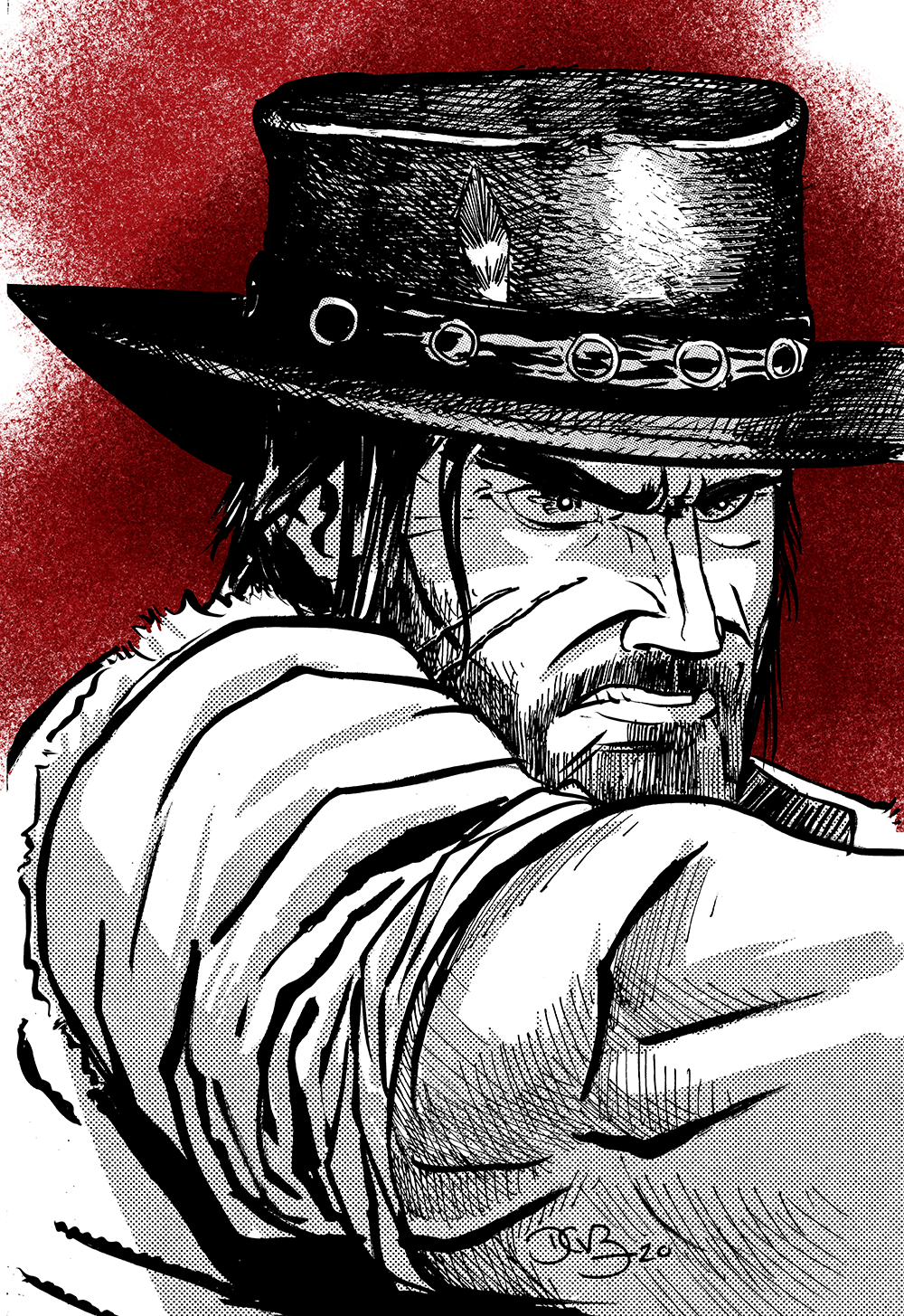Sketch Fridays #68 – John Marston

Alongside films like Django Unchained, it’s not unfair to say that Rockstar Game’s 2010 open-world adventure game, Red Dead Redemption, actually made the western genre viable for modern––i.e., young––audiences.
A major part of that was due to the strength of the performance and writing of the main character, John Marston. Marston is a former outlaw who kind of did what a lot of anti-heroes do before things go awry––he had one last score and then quit his gang to go live a life of legitimate means. He bought a ranch, married a partner that challenged and loved him, and even had a kid. For all intents and purposes, despite dealing with the frustrations a life living by the law brings a former outlaw, it was working, too.
His past caught up with him, however, as some Pinkerton agents drafted him to hunt down a member of his former gang, thus kicking off the events of the game.
John Marston was unlike most other characters in video games; he was empathetic, earnest in his desire to live a clean life, and showed the frustration and complexity of being on the other side of the law when dealing with this former colleagues. What’s more is that the game supported that narrative as well. It didn’t carry––well, not very much––the ludonarrative dissonance (the difference in a game between the story being to told through gameplay versus the story being told through cutscenes or cinematic sequences) that burden many other games. RDR decidedly set itself up against being a mere power fantasy. Throughout the entire game you were limited by the agility and ability of the character, or the horse he rode, or the environment you were in (which they doubled down on in the sequel). It made for an incredibly immersive and engaging experience.
Even though the sequel (actually a prequel) has come and gone and, in some cases, it wholly surpassed its predecessor in monumental ways (including the main character, in my opinion), John Marston holds a very special place in the minds of a certain generation of gamers, and deservedly so.
Marston was, for many, the first real tragic hero they had encountered in a medium that actually spoke to them (unlike dragging a teenager to a Shakespeare play, for example); Marston became an example to show that video games were more than bloody bursts of mortal combat––they also could be places for nuanced characters, beautiful environments, and deliberately paced and powerful narratives.
Just like in the story itself, Marston carries more on his shoulders than he wants or even deserves, but he forever seems up to the task.

Discussion ¬